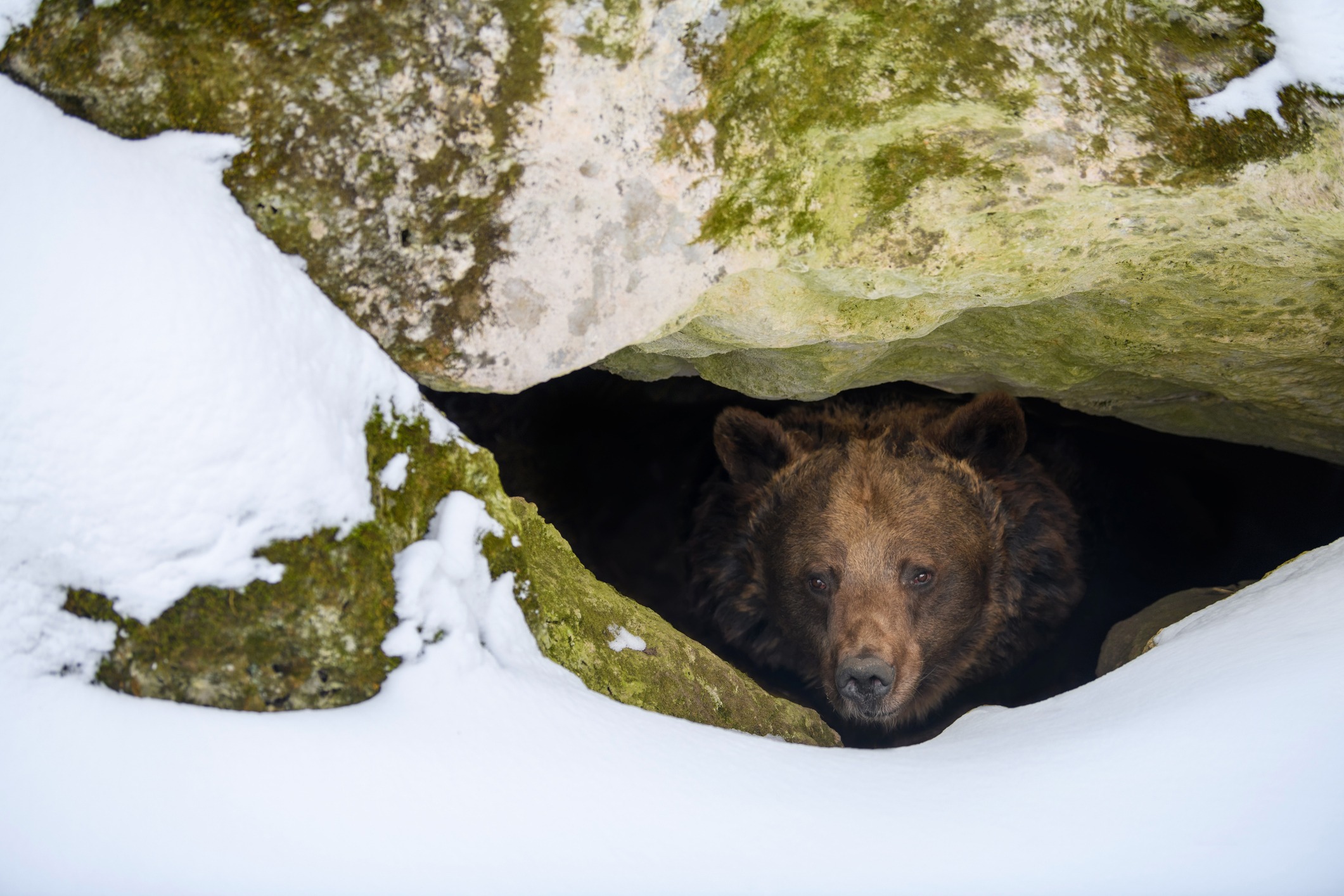Before the read
New research and seasonal patterns suggest your well-being might benefit more from a slower, mindful start.
By syncing with the rhythms of nature and focusing on reflection instead of reinvention.
Small habits, seasonal rest, and steady momentum can lead to longer-lasting progress and peace.
The New Year arrives with its usual fanfare—resolutions, fresh goals, and the pressure to hit the ground running. But let’s face it: mid-winter, with its short days and lingering holiday fatigue, isn’t exactly the ideal time for a complete reset. What if, instead of forcing rapid change, we gave ourselves permission to ease in, reflect, and build steady momentum for the ahead?


Why the New Year Is Overrated: Reclaiming the Power of Slow Starts
Every January, we’re hit with the same message: “New year, new you!” The calendar flips, and suddenly we’re supposed to become shinier, more productive versions of ourselves—meal prepping, gym hopping, vision-boarding machines. But let’s be honest: the pressure to overhaul your entire life in the middle of winter feels less like motivation and more like a setup for burnout.
The truth is… January is not the ideal time for grand transformations. Nature knows this—trees are bare, animals are hibernating, and daylight is scarce. Yet here we are, trying to bloom in the dead of winter.
What if, instead of sprinting out of the gate, we embraced a slower, more intentional start to the year? What if we treated January not as a deadline for reinvention but as a season for reflection, rest, and gentle momentum?
Let’s talk about why the January hustle is overrated—and how reclaiming the power of slow starts might just set you up for a more sustainable, fulfilling year.

The January Hustle Trap
Somewhere along the way, January became less about easing into a new year and more about proving something—to ourselves, to others, to our social media followers. The problem? The timing couldn’t be worse.
Post-holiday exhaustion is real. Financial stress is lingering. The days are short, and seasonal affective disorder is casting its shadow over many of us. Yet, instead of honoring this natural slowdown, we throw ourselves into ambitious resolutions and expect immediate results.
But research—and common sense—tell us that most New Year’s resolutions fail by February. Not because we’re lazy or unmotivated, but because we’re asking too much, too soon, during a season that isn’t built for rapid growth.
It’s time to break up with the myth that January success is defined by doing more.

Nature Knows Best
Look outside. Trees aren’t sprouting new leaves. Flowers aren’t blooming. Animals aren’t hosting productivity workshops—they’re hibernating. Winter, by design, is a season of rest and quiet preparation.
Yet, we humans have somehow decided that January is our annual performance review, and we better show up with a PowerPoint presentation titled “How I’ll Be Perfect This Year.”
Here’s a thought: What if we synced our rhythms with the season? What if January became less about immediate output and more about laying down roots for the months ahead?
Winter isn’t a time for hustling; it’s a time for reflecting, conserving energy, and planting seeds. And no, that doesn’t make you lazy—it makes you smart.
Nature operates in cycles for a reason. The stillness of winter isn’t a flaw in the system—it’s a critical phase of the process. Trees aren’t idle; they’re redirecting energy inward, strengthening their roots to prepare for spring’s demands. Animals aren’t being unproductive; they’re preserving their resources to survive and thrive when the time is right.
Even the soil is at work, breaking down nutrients and preparing to support new growth. This season isn’t about visible progress—it’s about invisible groundwork. And yet, we treat our own cycles as if they’re exempt from these natural laws. We ignore our need for rest, bypass reflection, and sprint toward growth without first building the foundation to sustain it. But meaningful change doesn’t come from frantic energy—it comes from steady intention.

The Case for a Slow Start
Imagine January as a runway—a space to build momentum before taking off. Here’s how you can shift your mindset:
1. Reflect Before You React
Instead of diving headfirst into resolutions, take time to reflect. What worked last year? What didn’t? How do you actually want to feel this year? Use January to ask better questions instead of rushing to find answers.
2. Start Small—Ridiculously Small
Big, sweeping changes rarely stick. Instead, focus on one small habit at a time. Drink more water, spend five minutes journaling, or take a short walk daily. Tiny actions compound over time.
3. Honor the Season You’re In
January isn’t spring. It’s not time for rapid growth; it’s time for gentle care. Make space for rest, slow mornings, and activities that restore you instead of draining you.
This isn’t about abandoning ambition—it’s about building a foundation that can actually support it.
Success Isn’t a January-Only Club
Somewhere along the way, we started treating January like a “now or never” moment—an exclusive nightclub with a velvet rope and a bouncer checking if your resolutions are impressive enough to let you in. But success doesn’t happen in a single month. It happens in the spaces in between—the consistent, thoughtful steps we take over time.
Rethink Your Definition of Progress
Progress doesn’t always look like crushing your goals. Sometimes, it looks like setting boundaries, saying no, or simply showing up for yourself in small, meaningful ways.
Play the Long Game
Pace yourself. January is just one chapter in a twelve-part story. If you overextend yourself now, you risk running out of steam before spring even arrives.
Let Rest Be Part of the Plan
Rest isn’t a reward for productivity—it’s a requirement. Build rest into your routine the same way you schedule meetings or workouts. Protect it fiercely.

The Wellness Case for Taking It Slow
When you stop forcing January to be your personal bootcamp, your mind, body, and emotions start to thank you.
- Your Mind: Less pressure means less anxiety and more clarity. You can actually think about what you want instead of reacting to what you think you should want.
- Your Body: Crash diets and extreme workout plans are unsustainable. Small, consistent habits—like better sleep, hydration, and movement—make a bigger impact.
- Your Emotions: Slowing down creates space for self-compassion. You’re allowed to exist without constantly striving for the next milestone.
Wellness isn’t about how hard you push—it’s about how consistently you care for yourself.
When you step away from the all-or-nothing mindset January so often demands, everything feels a little lighter. The pressure to overhaul your life overnight fades, and you start to focus on what actually matters: consistency, balance, and self-awareness. Bootcamps are designed for quick results, not lasting change—and treating January like one often leaves us exhausted before the year even begins.
When you shift your focus from immediate outcomes to steady progress, you’ll find that growth happens more naturally and with far less resistance. January isn’t the finish line—it’s just the first step.
Practical Ways to Reclaim January
If you’re ready to opt out of the January hustle, here’s where to start:
- Choose a Theme, Not Resolutions: Instead of rigid goals, pick a word or theme for your year—like balance, growth, or connection. Let it guide you gently.
- Make Room for Rest: Block out time for rest the way you’d schedule a meeting. Rest is productive.
- Move at Your Own Pace: Forget what everyone else is doing. Your timeline is yours alone.
- Celebrate Small Wins: Did you drink enough water today? Did you take five minutes for yourself? Celebrate it. Progress is progress.
Winter is proof that slowing down isn’t stagnation; it’s strategy.
The Year Is Long—You Have Time
January isn’t the whole story—it’s just the opening chapter. And no one expects a novel to hit its climax on page one.
The year will unfold in its own time. You’ll have moments of growth, challenge, rest, and reinvention. But you don’t need to sprint into it blindly.
So here’s your permission slip: Take your time. Breathe. Reflect. Move slowly and intentionally. Because the truth is, the most meaningful transformations don’t happen in a flurry of January resolutions—they happen in the quiet, steady moments when no one’s watching.
The year is yours. Start as slowly as you need to.
More by this author
The Wrap
- The pressure of the “New Year, New You” mentality contributes to burnout and unrealistic expectations.
- Embracing a mindful New Year allows for rest, reflection, and intentional momentum.
- Nature demonstrates that winter is a time to slow down and root deeply, not push for rapid growth.
- Creating small habits and honoring your current season leads to steadier, more meaningful progress.
- Success isn’t limited to January—it unfolds over time with consistent, personalized effort.
- Rest and reflection aren’t weaknesses; they’re required for deep emotional and physical wellness.
- Shifting your mindset now makes space for a more balanced, joy-filled year ahead.































